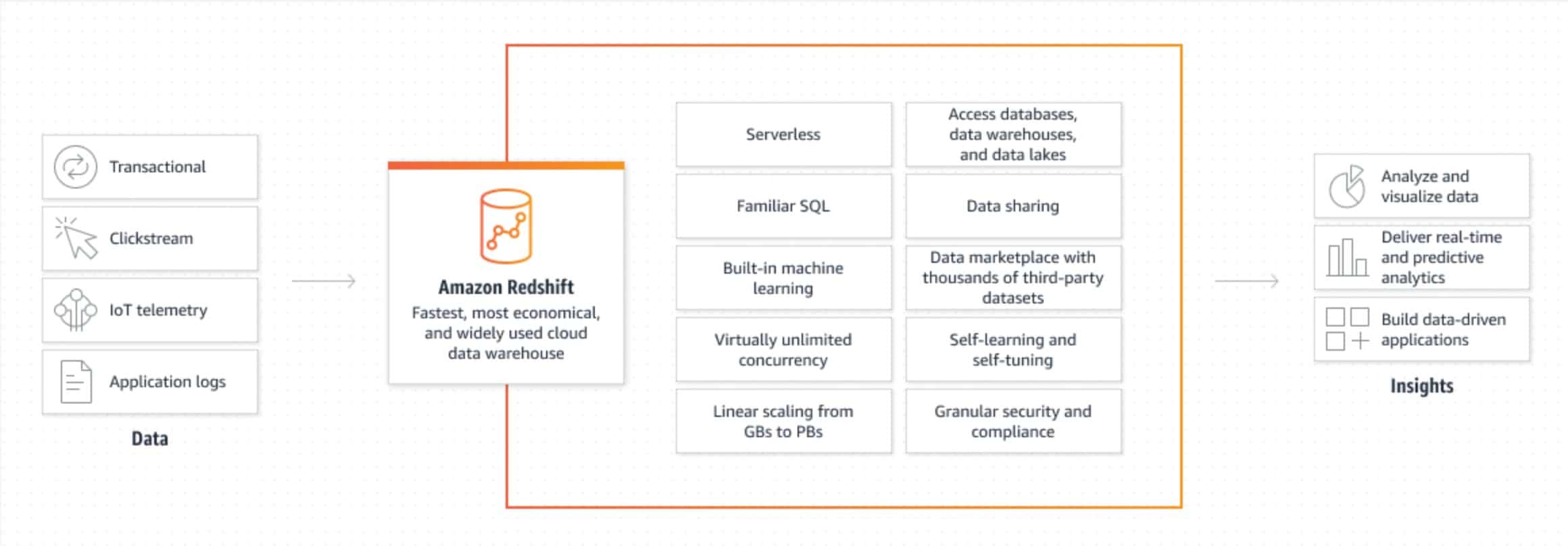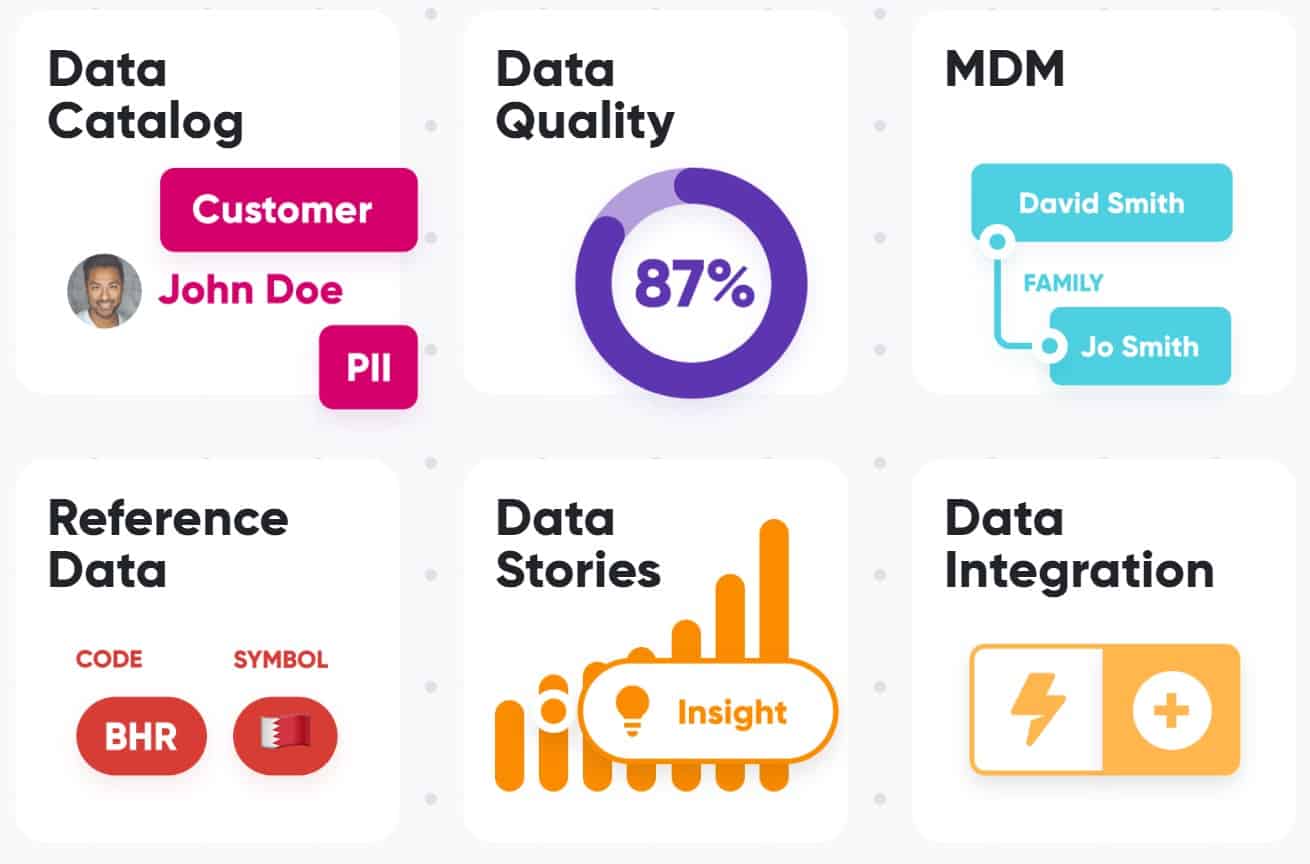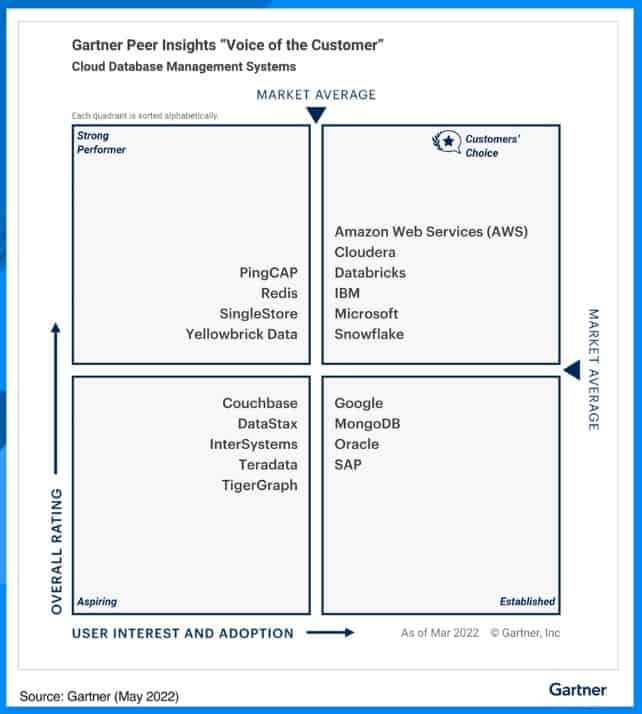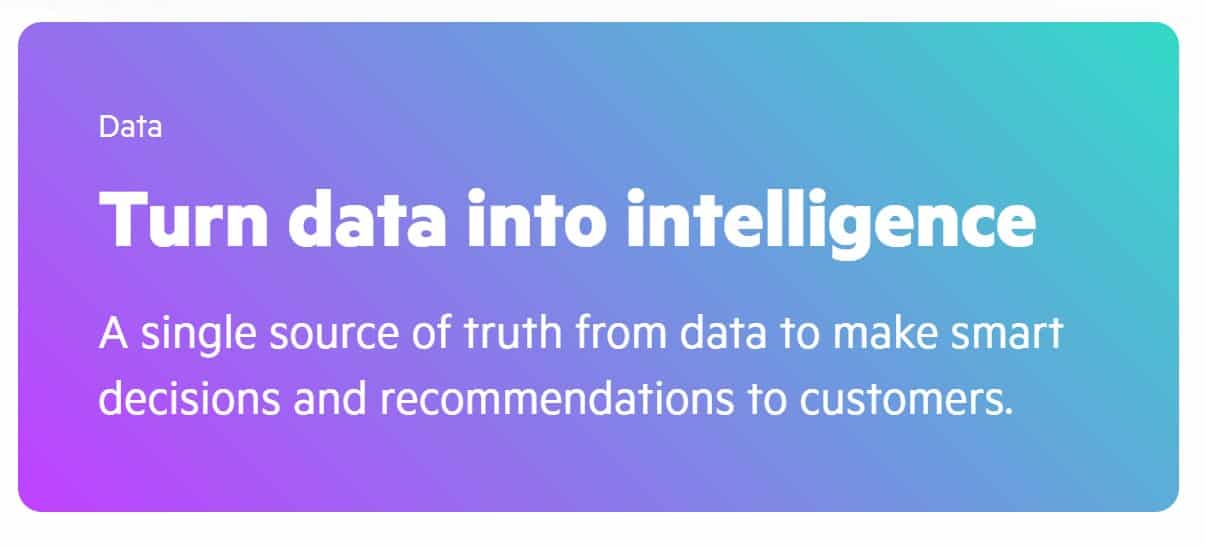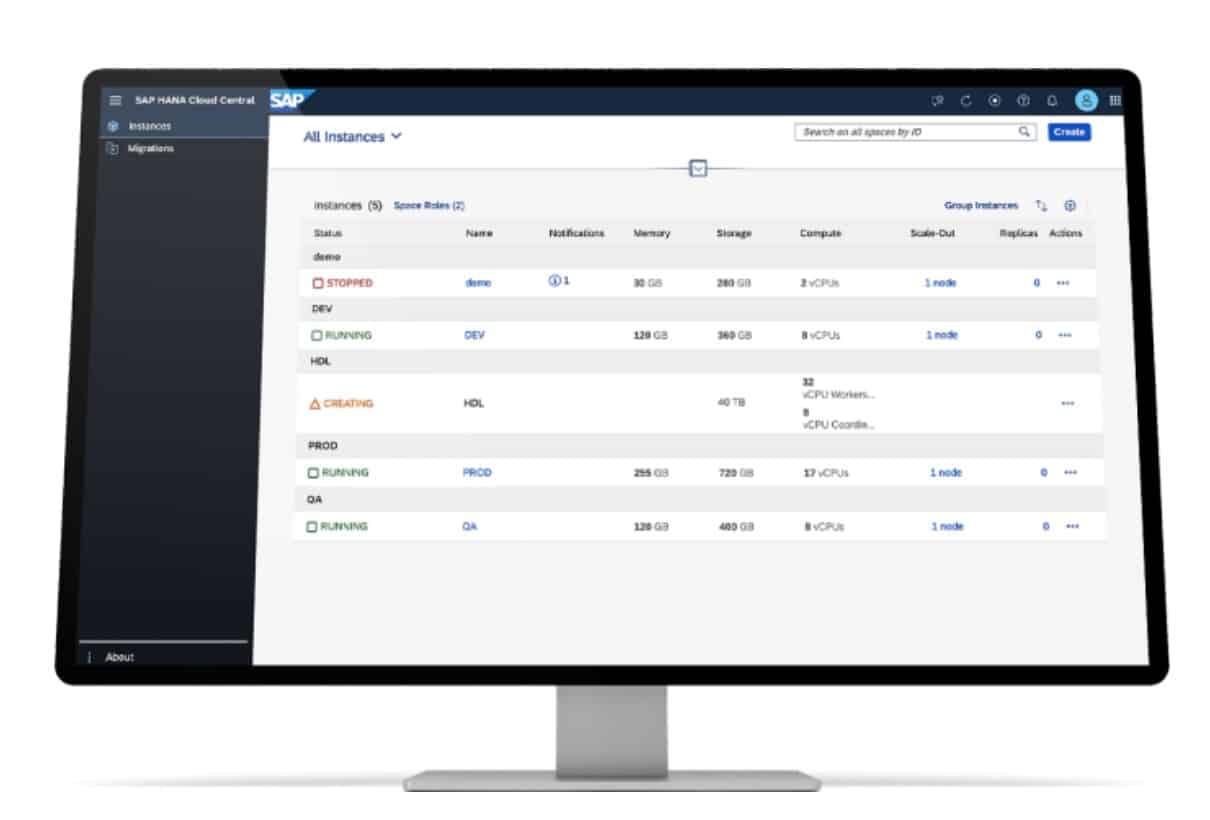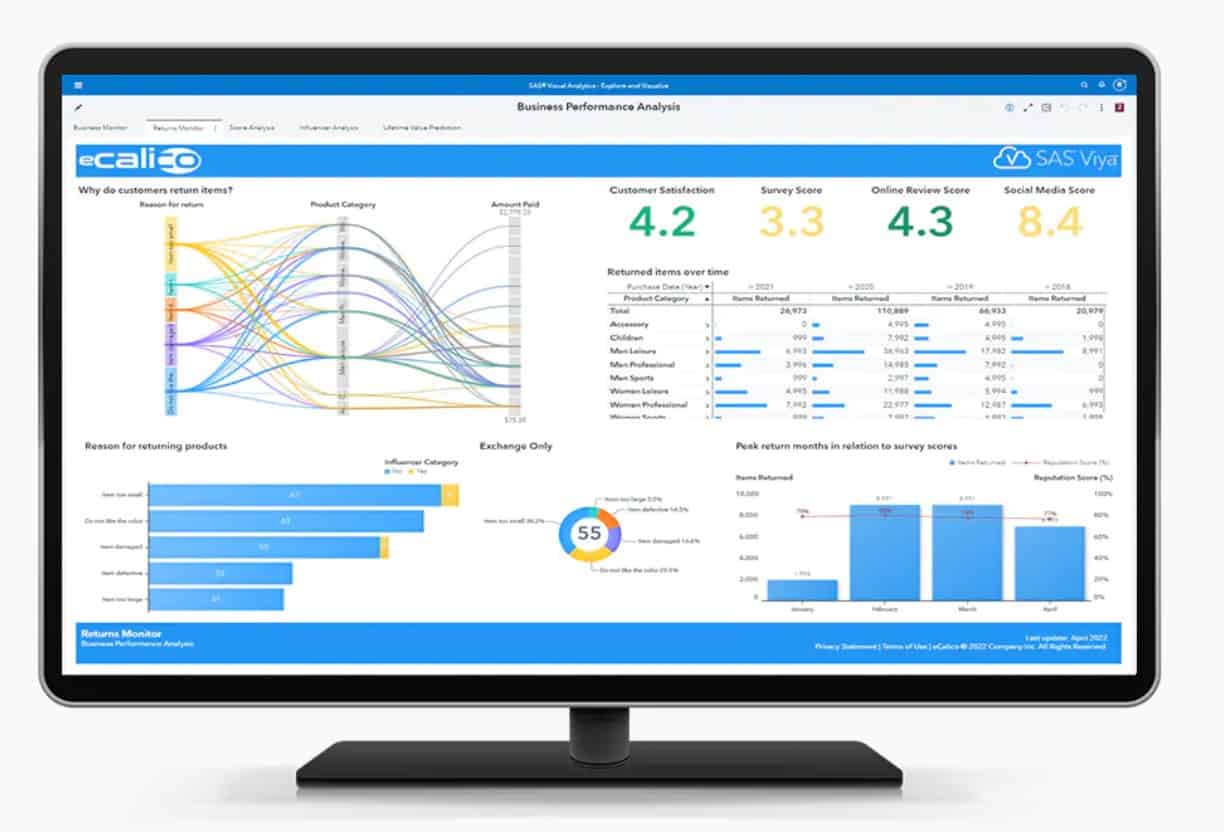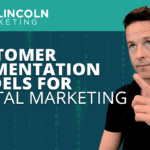Data Management Platform: Understanding Detailed Audience Data
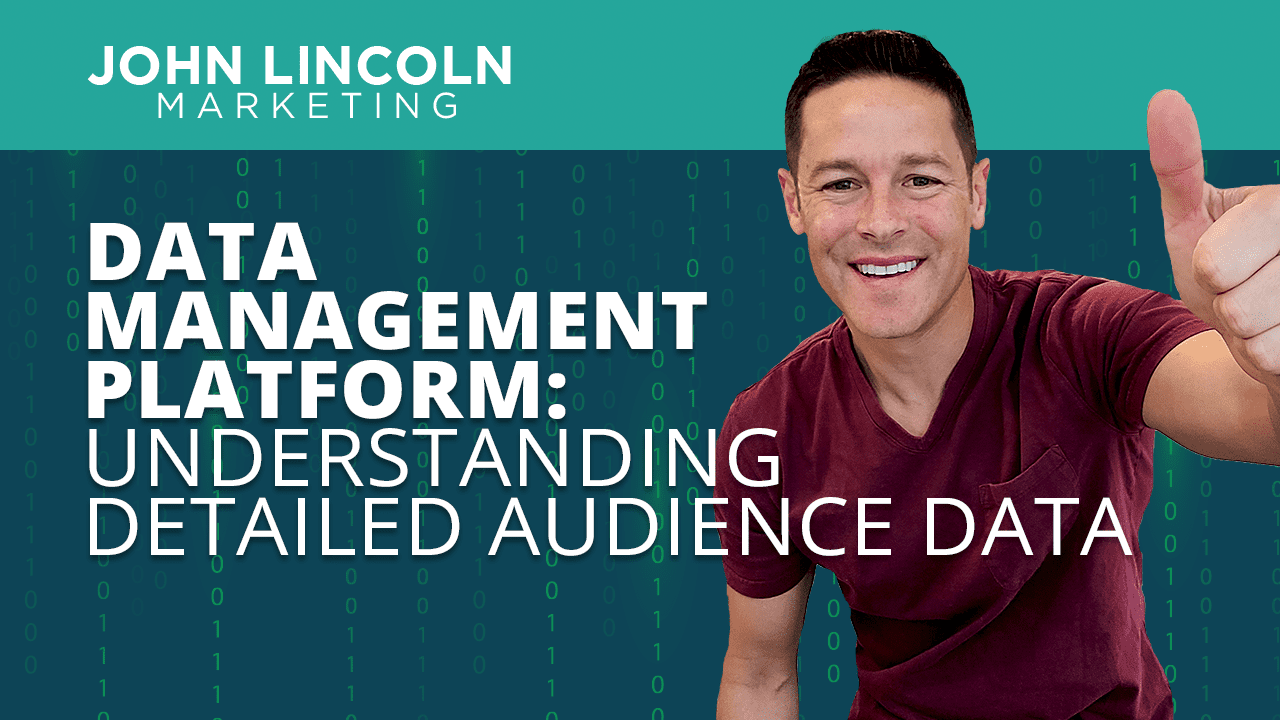
You’ve got info coming in from ad platforms, analytics tools, content management systems, and perhaps even some home-grown systems. All those different sources might not play together nicely right out of the box.
Enter a data management platform (DMP). It will help you collect, organize, and analyze that data.
Best of all: it will deliver actionable insights so you can generate more revenue.
In this article, I’ll cover the basics of a data management system. I’ll also list a few options if you’re in the market for a solution.
What is a Data Management Platform?
Might as well steal the definition: “A data management platform collects, organizes, and activates first-, second-, and third-party audience data from various online, offline, and mobile sources. It then uses that data to build detailed customer profiles that drive targeted advertising and personalization initiatives.”
To put it more simply: it’s the online tool that helps all those data sources play nicely together. It also gives you meaningful insights.
By the way, if you’re wondering about the differences between types of audience data, here they are:
- First-party data – Data from website visits, social media, and CRM systems.
- Second-party data – First-party data collected by somebody else. Often used in a partnership.
- Third-party data – Data that comes from anywhere else. Facebook analytics would be an example of third-party data.
Of the three, first-party data is often considered the “best.” That’s because you can rely on its accuracy since you’re the one collecting it.
How Does a Data Management Platform Work?
Ever visit a website and see ads for that company over the next several hours or days as you browse online?
If so, then congratulations. You now know how a data management platform works.
That’s a simple overview of the power it possesses, though.
Data management platforms often place a tracking code in the browser when a person visits a web page. That tracking code identifies the visitor’s interest.
For example, somebody might visit a product page for running shoes. In that case, the platform will identify the person as a running enthusiast.
Data management platforms also track demographic information beyond interests. For example, some platforms might identify an audience comprising female running enthusiasts who frequent marathons.
Keep in mind that data is anonymized for privacy reasons. So you won’t get any personally identifiable info (PII) from that audience.
But you can market your own women’s running shoes to the people in that market.
Why Should Marketers Care?
So why should you care about data management platforms? It comes down to one word: targeting.
As I noted above, if you’re running (no pun intended) a company that manufactures running shoes, you probably have several market segments.
You might offer running shoes for teens, running shoes for sprinters, running shoes for women, running shoes for triathletes, etc.
Wouldn’t it be great if you could market your running shoes for teen boys to an audience of teen boys who run the 2-mile in track?
Well, that’s what your data management platform will help you do. It will enable you to get the most out of your advertising dollars by running ads only to people interested in your offering.
Data Management Platforms vs. Customer Relationship Management Tools
A customer relationship management (CRM) tool is used by people in sales to track leads. They also record events (phone calls, email exchanges, and purchases).
But a CRM isn’t the same thing as a DMP.
Why? Because it doesn’t aggregate anonymized data, as I described above. You’ll have to rely on other platforms for that.
However, a CRM is a significant source of first-party data. So data management platforms can often use CRM info to create reports that deliver actionable insights.
Truth be told, you’ll probably need both types of platforms if you’re serious about marketing.
List of Data Management Platforms
If you find that you’re in need of a great DMP, here are a few options you should consider:
AWS Redshift
AWS Redshift analyzes data from your existing applications. You can use it to automate routine tasks, handle configuration management, and monitor data.
Ataccama ONE
This data management platform processes data evaluates business rules, and even comes with its own machine-learning UI.
Cloudera
Cloudera offers data storage and processing. It’s built on top of the well-respected Apache Hadoop Big Data solution. Cloudera is also a growing platform as it’s recently acquired Hortonworks and Arcadia Data.
Hewlett Packard Enterprise
This company delivers a cloud-based database management tool. You can deploy it on Amazon Web Services, Microsoft Azure, or an individually licensed platform. Allows you to query data in real-time.
Informatica
Use this data management tool to access, govern, secure, and integrate Big Data. It’s ideal for real-time streaming and high-throughput ingestion.
Precisely
Precisely offers a suite of tools that handle integration, verification, and location intelligence.
SAP HANA
This data management platform empowers you to collect and integrate data in real-time. The tool also offers data governance, orchestration, and monitoring. Perhaps best of all, you can create custom views of your data with a solution that runs in the cloud or on-site.
SAS
SAS enables you to integrate, improve and manage enterprise data. You can also use SAS to ingest data from legacy systems and Big Data solutions. It’s even got a collaboration feature.
TIBCO
TIBCO offers a suite of tools that helps you guarantee data quality. It also facilitates data management as well as business intelligence.
Wrapping It Up
Now you understand what a data management system does.
Better yet, you understand what it can do for you.
If you’re struggling with spreadsheets and find yourself doing lots of manual, routine work to get the most out of your marketing efforts, that’s a good sign that you need a data management platform.
Why not inspect some solutions I mention above? Then, take a few of them for a test drive.
You might find something just right for your business.
Welcome To John Lincoln Marketing
Welcome to John Lincoln’s personal website. On this website, we offer courses by John Lincoln, review software, publish articles and videos. You can also learn about John Lincoln’s books, films, book him to speak and contact him. John is directly associated with many of the businesses mentioned on this website and freely discloses this information.
About the Author

John Lincoln is CEO of Ignite Visibility, one of the top digital marketing agencies in the nation. Ignite Visibility is a 4x Inc. 5,000 company. Ignite Visibility offers a unique digital marketing program tied directly to ROI with a focus on using SEO, social media, paid media, CRO, email, Amazon and PR to achieve results. Outside of Ignite Visibility, Lincoln is a frequent speaker and author of the books “Digital Influencer” and “The Forecaster Method.” Lincoln is consistently named one of the top digital marketers in the industry and was the recipient of the coveted Search Engine Land “Search Marketer of The Year” award. Lincoln has taught digital marketing and Web Analytics at the University of California San Diego since 2010, has been named as one of San Diego’s most admired CEO’s and a top business leader under 40. Lincoln has also made “SEO: The Movie” and “Social Media Marketing: The Movie.” His business mission is to help others through digital marketing.
Get Social
Recent Tweets
Contact John Lincoln
Want to get in touch with John Lincoln? Click Here To Reach Out.
Related Posts
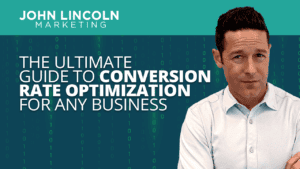
The Ultimate Guide to Conversion Rate Optimization for Any Business
Whether you’re a seasoned marketer or just starting out, conversion rate optimization (CRO) is a powerful tool that can boost your sales, leads, and overall

16 Questions to Help You Choose an SEO Company
Feeling overwhelmed by the sea of SEO companies out there? You’re not alone! Choosing the right partner is crucial for achieving your online marketing

Elevate Your Business with Proven Blogging Strategies in 2024
In 2024, business blogging is not only still relevant – it’s a critical component of any content marketing strategy. Companies that blog generate 67% more
